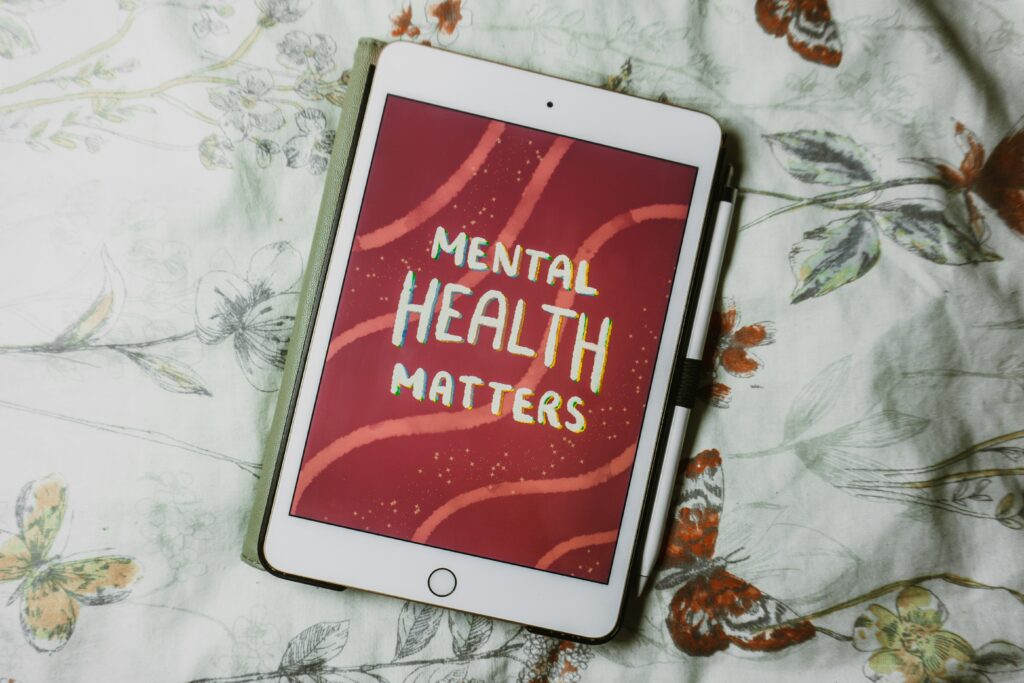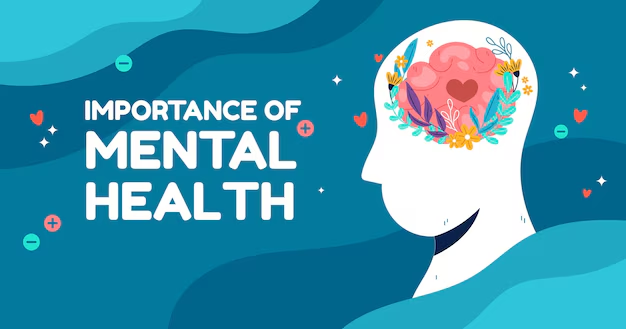Table of Contents

Introduction
Mental health is one of the most crucial aspects of human well-being, yet it remains one of the most misunderstood. Often, people view mental health in extremes—it is either a source of power, resilience, and clarity or a hidden battle that individuals fight in silence. The truth is that mental health is a dynamic and complex aspect of life, fluctuating between strength and struggle. It encompasses our emotional, psychological, and social well-being, influencing how we think, feel, and act. It also plays a significant role in how we handle stress, relate to others, and make choices throughout our lives.
In today’s fast-paced world, where stress, anxiety, and burnout have become common, mental health is more important than ever. The demands of modern life, with its incessant connectivity and relentless pursuit of success, can take a toll on our mental well-being. While positive mental well-being allows individuals to thrive, make informed decisions, and enjoy meaningful relationships, mental health struggles can make even simple tasks feel overwhelming. Recognizing this, it becomes evident that nurturing mental health is as essential as maintaining physical health.
Society’s perception of mental health has evolved over time, but stigma, misinformation, and cultural biases still prevent many from seeking help. The question remains: Is mental health a pillar of strength or a hidden struggle? This blog will explore both perspectives, highlighting how mental health can empower individuals while also shedding light on the silent battles many face. Through this exploration, we aim to foster a better understanding of mental health as a multifaceted concept that requires ongoing attention and care.
The Power of Mental Health: A Vital Strength
Mental health is often seen as something that needs to be “fixed” only when there is a problem. However, just like physical health, mental well-being is something that should be actively nurtured and strengthened. When properly maintained, mental health provides a solid foundation for resilience, emotional intelligence, creativity, and success. It enables individuals to bounce back from setbacks, face challenges with confidence, and cultivate a positive outlook on life.
The Role of Mental Strength in Personal Growth
A healthy mind is the key to growth and self-improvement. People with strong mental health:
- Handle stress and pressure effectively. They possess coping mechanisms and strategies that allow them to respond to stressful situations without becoming overwhelmed.
- Adapt to changes and challenges in life. Flexibility and adaptability are hallmarks of good mental health, enabling individuals to navigate life’s unpredictable twists and turns with grace.
- Build meaningful relationships with empathy and understanding. Strong mental health fosters emotional connections, allowing individuals to communicate openly and support one another.
- Develop self-awareness and emotional intelligence, helping them make informed decisions that align with their values and aspirations.
Psychologists suggest that mental toughness—the ability to maintain control and composure in difficult situations—is one of the defining factors of success in various aspects of life, from academics to careers and personal relationships. This mental fortitude can be cultivated through practice, resilience training, and mindfulness techniques.
Mental Health and Productivity
Studies show that individuals with good mental health are more productive, creative, and efficient. They have the mental clarity and focus necessary to tackle complex tasks and innovate in their fields. In contrast, mental exhaustion and stress lead to burnout, reduced performance, and decision fatigue. Many successful entrepreneurs, athletes, and leaders emphasize the importance of mental well-being in achieving their goals. They recognize that investing time in their mental health not only benefits them personally but also enhances their professional capabilities.
Examples of Mental Strength in Action:
- Michael Phelps, the Olympic swimmer, struggled with anxiety but used therapy and mental conditioning to strengthen his focus and performance, ultimately achieving unprecedented success in his sporting career.
- J.K. Rowling overcame depression and personal struggles to write the Harry Potter series, showing how creativity thrives when mental well-being is prioritized. Her journey reflects the idea that adversity can fuel creative expression and resilience.
- Elon Musk has spoken about his battles with stress and pressure while leading multiple companies but emphasizes self-care and resilience in his journey. His candidness highlights the importance of mental health in high-pressure environments.
Emotional Intelligence and Mental Health
Mental well-being is closely linked to emotional intelligence (EQ), which includes self-awareness, empathy, and emotional regulation. High EQ allows individuals to:
- Navigate social situations with confidence. They can read social cues and respond appropriately, fostering harmonious interactions.
- Resolve conflicts effectively. Individuals with high emotional intelligence can mediate disputes and find common ground, leading to healthier relationships.
- Understand their emotions and reactions better. This self-awareness equips them to manage their feelings proactively, reducing the likelihood of emotional outbursts or misunderstandings.
In the workplace and personal life, emotionally intelligent individuals form better relationships, communicate effectively, and remain calm under pressure. They are often sought after for leadership roles because of their ability to inspire and motivate others.

The Hidden Struggle: The Challenges of Mental Health
While strong mental health can be a source of power, mental health struggles can be debilitating. Many people battle issues like anxiety, depression, stress, PTSD, and burnout, often without others knowing. These challenges can affect anyone, regardless of age, gender, or background, and they are often compounded by societal expectations and pressures.
The Invisible Burden of Mental Illness
Unlike physical illnesses, mental health struggles are not always visible. A person can appear successful, happy, or confident while battling internal turmoil. This hidden struggle often leads to:
- Self-doubt and low self-esteem. Individuals may feel inadequate or unworthy, even when they achieve their goals.
- Social isolation due to fear of judgment. The stigma surrounding mental illness can lead individuals to withdraw from social interactions, exacerbating their feelings of loneliness.
- Difficulty in seeking help due to stigma. The fear of being labeled or judged can prevent individuals from reaching out for the support they need.
Real-Life Example:
Robin Williams, the famous comedian, brought laughter to millions but privately battled severe depression. His passing shocked the world, highlighting how even the most joyful individuals might be struggling inside. This tragedy serves as a poignant reminder that mental health issues can affect anyone, regardless of their outward success or happiness.
Stigma and Cultural Barriers
Despite increasing awareness, many societies still view mental health issues as a weakness rather than a legitimate concern. This stigma prevents people from:
- Talking about their struggles openly. Cultural taboos around mental health can make it difficult for individuals to express their feelings or seek help.
- Seeking professional help. Many avoid therapy or counseling due to the fear of being judged or misunderstood.
- Getting support from family and friends. The lack of understanding about mental health can lead to unsupportive environments for those who are struggling.
Work and Mental Health: The Silent Crisis
Workplace stress and burnout are major contributors to declining mental health. Employees often:
- Feel pressured to meet unrealistic expectations. The drive for productivity can lead to a toxic work environment where mental health is overlooked.
- Experience chronic stress due to job demands. Constant pressure can lead to exhaustion and decreased job satisfaction.
- Fear losing their jobs if they discuss mental health concerns. This fear can prevent employees from advocating for their well-being, perpetuating a cycle of stress and burnout.
Companies that fail to prioritize employee mental health see higher turnover rates, lower productivity, and workplace conflicts. Conversely, organizations that implement mental health initiatives often experience improved morale, increased loyalty, and a healthier workplace culture.
The Balance: Recognizing Both Sides
Mental Health as a Spectrum
Mental health is not black and white—it exists on a spectrum. A person may experience phases of:
- Good mental health, where they feel in control and capable of managing life’s challenges.
- Moderate struggles, where stress and anxiety impact them temporarily but do not overwhelm their daily functioning.
- Severe distress, where professional intervention is needed for recovery and support.
Recognizing this spectrum allows individuals and communities to approach mental health with empathy and understanding, acknowledging that everyone experiences fluctuations in their mental well-being.
Strategies to Maintain Mental Well-being
To balance mental health between strength and struggle, individuals can:
- Practice mindfulness and meditation. These practices help ground individuals in the present moment, reducing anxiety and promoting relaxation.
- Engage in therapy or counseling when needed. Seeking professional help can provide valuable tools for coping and healing.
- Create healthy boundaries in personal and professional life. Setting limits on work and social obligations can prevent burnout and promote self-care.
- Prioritize self-care through rest, hobbies, and exercise. Engaging in activities that bring joy and relaxation is vital for maintaining mental health.
The Role of Community and Support Systems
Family, friends, and colleagues play a huge role in mental well-being. Open conversations and support systems can prevent isolation and encourage healing. Communities that prioritize mental health create an environment where individuals feel safe to express themselves and seek help without fear of judgment.

Breaking the Stigma and Moving Forward
Changing Perceptions About Mental Health
- Educating people that mental illness is not a sign of weakness. Awareness campaigns and educational programs can help shift the narrative around mental health.
- Promoting mental health awareness in schools, workplaces, and media. By normalizing conversations about mental health, we can create a more supportive environment for those in need.
Encouraging Help-Seeking Behavior
- Making therapy and counseling more accessible and affordable. Reducing financial barriers can enable more individuals to seek the help they need.
- Encouraging mental health check-ups, just like physical health check-ups. Routine mental health screenings can help identify issues early and promote proactive care.
How Governments and Organizations Can Help
- Implementing mental health policies in workplaces. Organizations should prioritize employee mental health through policies that support well-being.
- Providing mental health services in schools and universities. Accessible resources can help young people navigate their mental health challenges during critical development periods.
- Funding mental health research and treatment programs. Increased investment in mental health initiatives can lead to better resources and support for those affected.

Conclusion
Mental health is both a powerful strength and a hidden struggle. It has the potential to drive success, emotional intelligence, and resilience, but when ignored, it can become a silent battle. By acknowledging the complexities of mental health and fostering a culture of understanding and support, we can empower individuals to prioritize their mental well-being.
Breaking the stigma and recognizing the importance of mental well-being is crucial. Whether through self-care, professional help, or community support, prioritizing mental health can transform lives and create a healthier, more compassionate society. Together, we can create a world where mental health is openly discussed, consistently prioritized, and treated with the same respect as physical health, ensuring that everyone has the opportunity to thrive.
if you suffering from mental health don’t hesitate to contact to professional doctor take your appointment now only on PAINASOLVER